Author: Hazel
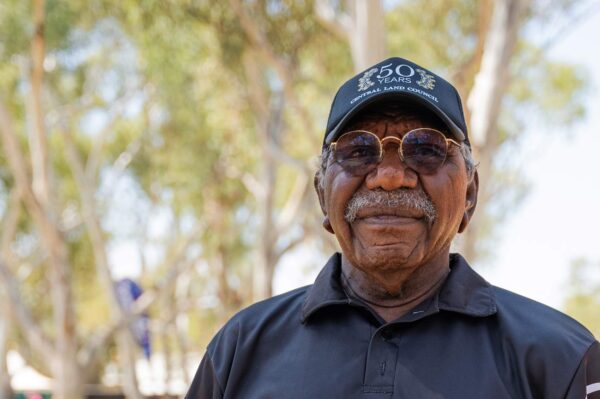
“I have made mistakes in my life, but I have worked hard to turn things around and set things right.
I regret things I did in the past and have worked hard to make up for them. For the past decade, I’ve been on a better path, helping others and working to prevent domestic violence in our communities.
As Senator Price has revealed this week, everyone deserves a second chance. I’m using mine to make the world a better place for our families. I would like to be given the same opportunity that Senator Price has sought this week.
I draw on my life experience when I talk to men in behaviour change workshops. The workshops bring together senior community leaders and the police with a range of community support programs.
Men need to see that change is possible. I teach them that their mistakes don’t have to define them. If I can change, they can too. I talk to them about leaving old attitudes behind and creating a new life for themselves, one that’s filled with respect and love for others.
I tell my story honestly in these workshops because truth-telling is powerful.
It helps set you free and can save lives by showing others a different path.
My teachings come from my lived experience. I have faced the consequences of my actions and am now looking at a better future, not only for me but for everyone around me.
Last December, at the Stop the Silence! End the Violence! rally in Alice Springs, I shared my story so the men there could benefit from hearing from my experience.
It’s important for men to see they can turn their lives around. I am in a good position now with my family. As chair of the Central Land Council, I am discussing the need for preventative education and programs with our members.
Last May, our council backed a proposal for breaking the cycle of violence.
If we want to stop male violence, we have to speak the truth. If you don’t bring out the truth, nothing is going to change.
Men need to know that they can take a different path, and I’m living proof that change is possible. For ten years, I’ve been on a better path, showing that it can be done. I am here to help others do the same.
It’s not easy, but it can be done. No one can do it for you. You have to take the initiative and choose to turn your life around.
For me, like for Senator Price, giving up alcohol helped make me the person I wanted to be.
My mistakes are now teaching others that they can choose a better life, too.”
Download the PDF
MEDIA CONTACT: Hazel Volk | 0473 644 533 | hazel.volk@clc.org.au
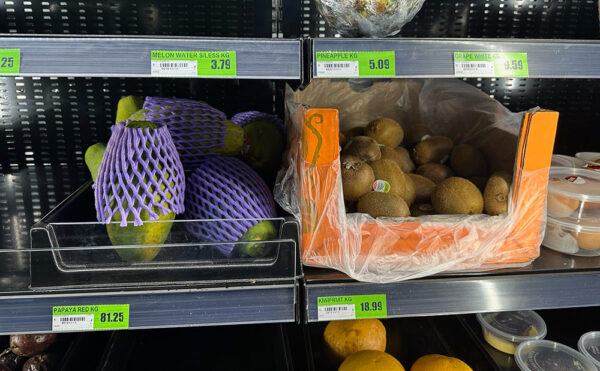
Central Land Council chief executive Les Turner has welcomed today’s federal government election promise of a price cap on 30 essential items sold by remote community stores.
“This is great news for our people, Mr Turner said.
“They have been crying out about unaffordable food and other essentials in their communities. For many years they have struggled with prices that are 40 per cent higher than at the major supermarkets in town.”
“We can’t beat the epidemic of diabetes, kidney disease and rheumatic fever that is shortening our lives if we can’t afford healthy food.”
Mr Turner urged the Coalition to take a bipartisan approach to food security.
“We are asking the opposition to match Labor’s promise or tell us what their policy solutions are.”
The CLC has advocated strongly for policy solutions such as boosting remote incomes, freight subsidies and price caps.
Late last year it made a major submission to the National Remote Food Strategy.
“This week we feel that our voices are finally being heard,” Mr Turner said.
MEDIA CONTACT: Hazel Volk | 0473 644 533|media@clc.org.au
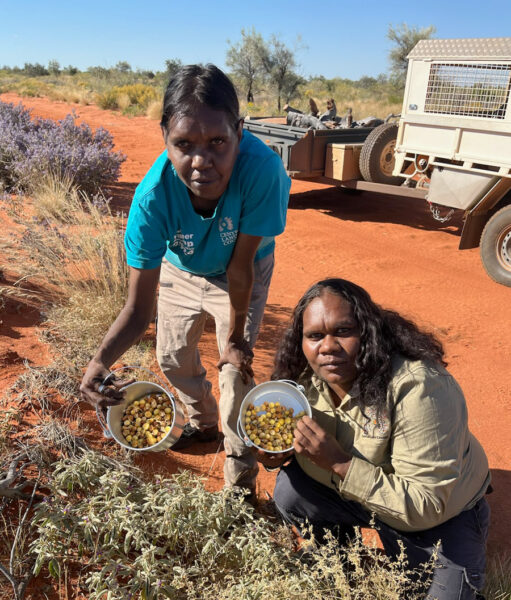
The Central Land Council will celebrate the opening of a new ranger hub in Kintore (Walungurru) on Wednesday, 12 February.
The Walungurru [wah-loo-NGOO-roo] Rangers, community residents, members of the Central Western Desert Indigenous Protected Area sub-committee and CLC staff will open the hub at 11am with a celebration including purlapa (ceremonial dancing) and ribbon-cutting, followed by a barbecue and cake.
The hub replaces the group’s modest operational base, a small green garden shed.
The facility has been purpose-built for the ranger program and will support CLC meetings. It includes a large shed and an office for up to 20 people, shade structures for outdoor meetings, an external toilet block and a barbecue area.
“This hub is a game changer for the Walungurru Rangers and the Kintore community,” said CLC chief executive Les Turner.
“From humble beginnings in a small garden shed to this customised ranger hub, it’s a testament to what can be achieved when communities, traditional owners and organisations work together. The rangers have earned this space through their hard work and dedication.”
Marlene Spencer is on the board of directors for Pintupi Homelands Health Service which supported the establishment of the ranger group.
“This new ranger office means rangers have a place for their equipment, their shovels, their swags. They now have a place to get ready for their bush trips.”
Formed in 2019 with a grant from the 10 Deserts project, the ranger group includes four women and one male ranger, with three more male rangers joining soon.
Walungurru ranger Camilla Young says her people have been looking after country for generations.
“We are just following our grandmother and grandfather’s footprints. My grandmother would take me out bush and teach me how to look after country.
“Now, with the ranger program, we can keep teaching young ones how to look after country. They can get a job as a ranger,” said Ms Young.
“We’ve been waiting a long time for this. Many, many years. We now have a washing machine, toilets, and a big place to sleep. Other ranger groups now have room to stay when they visit,” said ranger Michael Wheeler.
The hub allows the rangers to keep working with their colleagues from the Anangu Luritjiku Rangers from Papunya, the Katiti Petermann Indigenous Protected Area, the Warlpiri Rangers and the Kiwirrkurra Rangers from Western Australia.
MEDIA CONTACT: Hazel Volk | 0473 644 533| media@clc.org.au
The Central Land Council’s executive committee has called for the NT Anti-Discrimination Commissioner to review systemic racism in the NT police.
Meeting for the first time since the Independent Commission Against Corruption (ICAC) into the conduct of police officers released its report, the eleven elected members said the report does not reflect Aboriginal people’s experiences of racism in the NT police.
Mr Williams said it is time for an independent review because the ICAC investigation failed to address community concerns about systemic racism within the police.
“There is no Aboriginal Territorian alive who has not witnessed or experienced racist acts by the police,” CLC chair Warren Williams said.
“We need a truly independent review that does not cast doubt on our lived experience.”
“I stand with Northern Land Council chair Matthew Ryan who said that ‘things can only improve if we start with truth telling’,” he said.
“Truth-telling is the first step towards an anti-racist system.”
The CLC executive wants the NT government to resource the commissioner to carry out the independent review.
It acknowledged the NT Police Commissioner’s apology to Aboriginal people for the past wrongs and harms done by the police and welcomed the appointment of Leanne Liddle to drive internal reform.
“It’s a step forward, but it’s not enough,” Mr Williams said. “Actions speak louder than words and appointments.
“We know police officers in our communities are under stress because they lack resources, but denying that racism exists among their colleagues hurts everyone.
“It ignores our lived experiences and it means police officers face no pressure to change their attitudes and behaviour.”
The call echoes other Aboriginal leaders who want the government to implement priority reform 3 of the National Agreement on Closing the Gap, namely to change how governments operate by identifying and eliminating racism.
The Aboriginal Peak Organisations of the NT, of which the CLC is a member, requested an independent review of the NT police that addresses systemic racism in June.

We need a voice to close the widening gap in the Northern Territory New Productivity Commission data shows that the Northern Territory is going backwards on eight out of the 17 socio-economic Closing the Gap targets.
“Business as usual is failing our people,” said Dr John Paterson, APO NT Convenor and Acting CEO of NAAJA. “We need a Voice to Parliament so our solutions can be heard.”
While states such as Western Australia and Victoria are making real progress on Closing the Gap, the Northern Territory is getting worse from an already low baseline.
“The NT has the highest proportion of Aboriginal people, but it lacks a real whole of government commitment to implementing our solutions.
“The Closing the Gap partnership depends on the recognition of our expertise,” Donna Ah Chee, APO NT Governing Group member, and Acting CEO of AMSANT.
Most concerning is the adult imprisonment numbers, which are increasing at the highest rate in the country. The Northern Territory Government has walked away from its commitment to implementing the recommendations from the Don Dale Royal Commission, and instead has reinforced and fortified punitive aspects of the justice system that we know do not work.
The NT is the only jurisdiction where the employment gap is widening.
“We have long presented alternatives to the failed and costly Community Development Program (CDP) that will create real jobs in our communities,” Dr John Paterson said. “It is wasteful and a missed opportunity not to formally partner with us on solutions.”
The gap in the life expectancy for Aboriginal women in the Northern Territory is also getting wider. Aboriginal women die 12.8 years younger than non-Aboriginal women here. Many of the Safe Houses in the Northern Territory are in a state of disrepair and neglect, if they are present in communities at all.
We call on governments to invest in Aboriginal owned and led programs to support women’s safety.
Housing in the NT remains almost twice as crowded as in all other States and Territories. The new National Partnership Agreement on Housing and Homelands is an opportunity for the NT to ensure the investment we need to close this gap.
While Aboriginal youth everywhere else are increasingly getting educated, trained and employed, our young Territorians are experiencing the worst outcomes in the country. Current, mainstream education systems are failing our children.
We call on the NTG to speed up delivering on its commitment to reform school funding so remote schools are not missing out on needs-based resourcing.
“We welcome the opportunity for a new way of working with government. At the moment, there is an inconsistency between the rhetoric and the reality. It’s one thing to be at the table and another to be heard and listened to” said Jerome Cubillo, CEO of NTIBN.
Download the Annual data report | Closing the Gap Information Repository – Productivity Commission (pc.gov.au)
For Media enquiries please contact: APO NT Manager, email: secretariat@apont.org.au | Phone: 0473 423 806
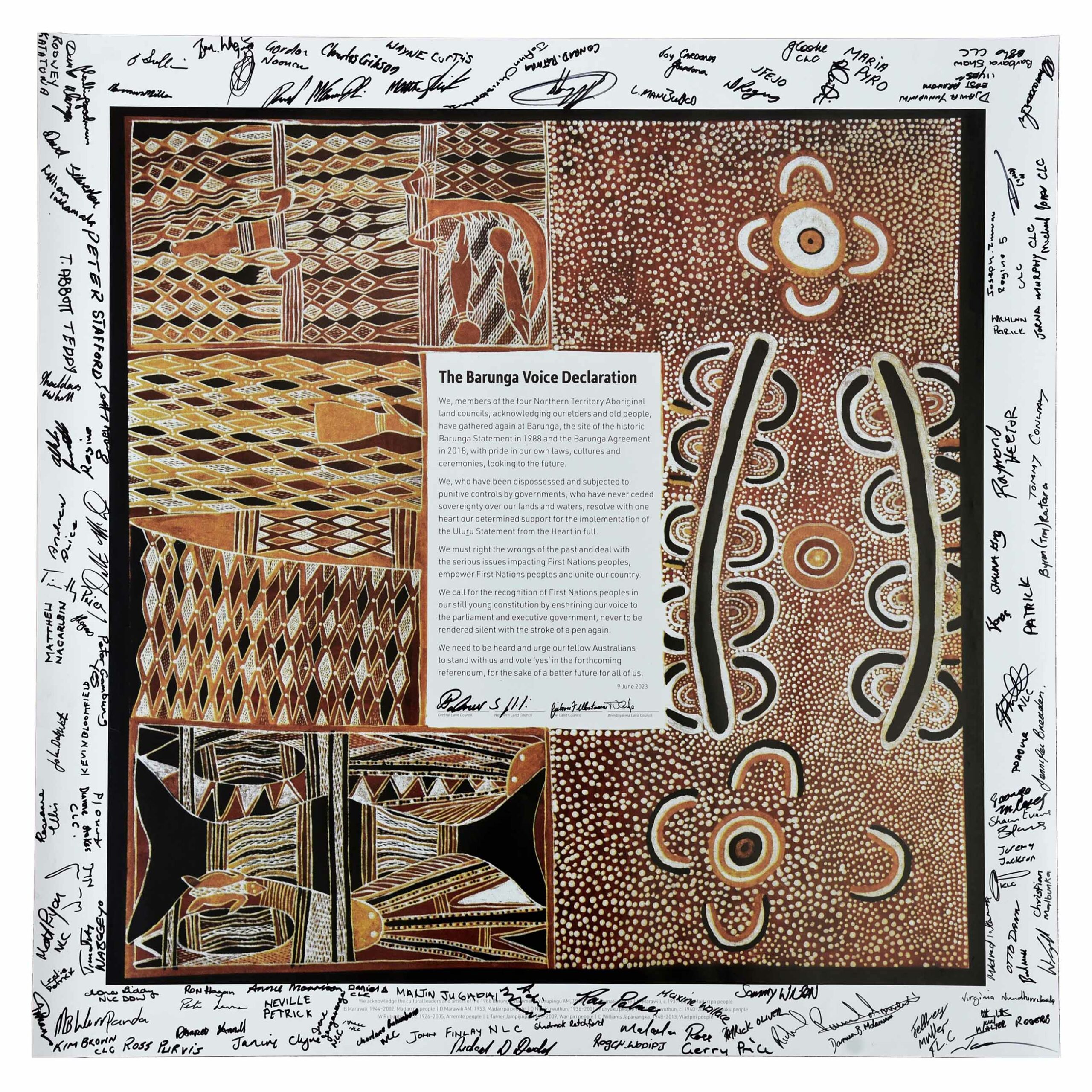
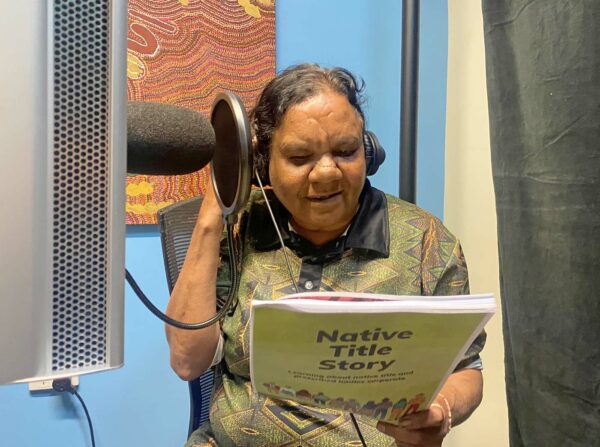
The largest gathering of native title holder corporation members in Central Australia will this week launch a new phone app in six local languages.
The Prescribed Bodies Corporate Regional Forum, better known as PBC Camp, is a biennial event aimed at strengthening the capacity of members and directors to run more than 30 corporations in the Central Land Council’s region.
Between 100 and 150 participants will today kick off the camp at the Yipirinya School in Alice Springs, where it had to be relocated due to rain.
Tomorrow morning at 10:45am CLC chief executive Les Turner will launch the multilingual PBCmob app, a new tool tackling the literacy and language barriers to understanding one of Australia’s most complex pieces of legislation, the Native Title Act.
“Knowledge is power, and the app promises to return power where it belongs – with the native title holders,” Mr Turner said.
“It will help them cut through the legalese when they negotiate about developments such as mining and horticulture on cattle stations and manage land use agreements.”
“Native title holders in remote communities have poor access to computers and the internet and often limited digital literacy, but many use mobile phones,” said Mr Turner.
“Our highly visual app is simple and easy to navigate and, most importantly, it speaks their languages.”
It explains native title concepts in Arrernte, Alyawarr, Kaytetye, Pitjantjatjara, Warlpiri and Warumungu, and compares them with land rights.
“Native title rights and land rights are very different, yet people often confuse them,” the CLC’s manager of native title, Francine McCarthy, said. “The PBCmob app aims to clear up that confusion.”
“It will also be useful for all the agencies the members and directors of native title corporations deal with, from the National Indigenous Australians Agency to Indigenous Business Australia.”
The app was funded by the Aboriginals Benefit Account and is based on the CLC’s publication Native Title Story.
Ms McCarthy is sourcing additional funding so the CLC can add more languages to the app and also make it available on PC and Mac computers.
The three-day PBC Camp program also includes an information session and discussion about the voice to parliament.
Media Contact : Elke Wiesmann | 0417 877 579| media@clc.org.au

The chairs of the four Northern Territory Aboriginal land councils will visit Parliament House in Canberra tomorrow to deliver the 2023 Barunga Declaration urging Australians to support a Voice to Parliament.
The chairs and members of the land councils are elected representatives of tens of thousands of traditional owners and Aboriginal residents of remote communities, homelands, town camps and towns across the NT.
The four chairs will present the Barunga Declaration to Prime Minister Anthony Albanese.
On 9 June, members of the Northern, Central, Tiwi and Anindilyakwa land councils signed the Declaration at Barunga on the anniversary of the 1988 Barunga Statement that was presented to then Prime Minister Bob Hawke.
Thirty-five years ago the Central and Northern land council chairs Wenten Rubuntja and Yunupingu addressed the leader of the Federal Government and called for Aboriginal recognition and rights.

Today, the 2023 Barunga Declaration speaks directly to the people of Australia and calls for “the recognition of our peoples in our still young constitution by enshrining our voice to the parliament and executive government, never to be rendered silent with the stroke of a pen again”.
It invites all Australians to “right the wrongs of the past and deal with the serious issues impacting First Nations peoples…and unite our country”.
Northern Land Council chair, Dr Samuel Bush-Blanasi, said: “This Declaration comes from our people. It is the voice from the bush calling on all Australians to recognise us, support us, and help us make the changes so urgently needed for a better future, together.”
Tiwi Land Council chair, Gibson Farmer Illortaminni, said: “Through the establishment of a Voice to Parliament, we, the Tiwi people, want to be at the table when decisions are made that affect our land, culture, and future. We urge all Australians to join us to ensure our voices are heard and respected when important decisions are being made that affect us”.
“The Barunga Declaration deserves to hang alongside the Barunga Statement on the walls of the people’s house for all times and make future generations of Australians proud,” Central Land Council chair Matthew Palmer said.
Anindilyakwa Land Council chair, Tony Wurramarrba, said: “We want our voices to always be heard in the parliament and by the government before decisions are made about us. Business as usual has failed us. We are here to ask all Australians to help us open the door to a better way of working together and vote yes in the referendum.”
Watch grass-roots members of the land councils signing the agreement
Time and venue of the media event to be confirmed by Prime Minister’s Office.
Watch the video without subtitles
Media contacts (at Parliament House): CLC Elke Wiesmann 0417 877 579, NLC Francine Chinn 0427 031 382
